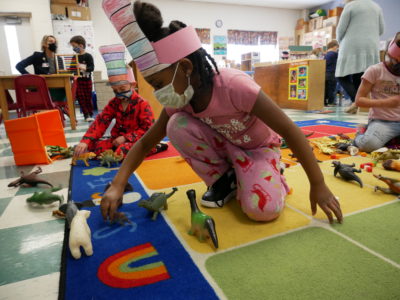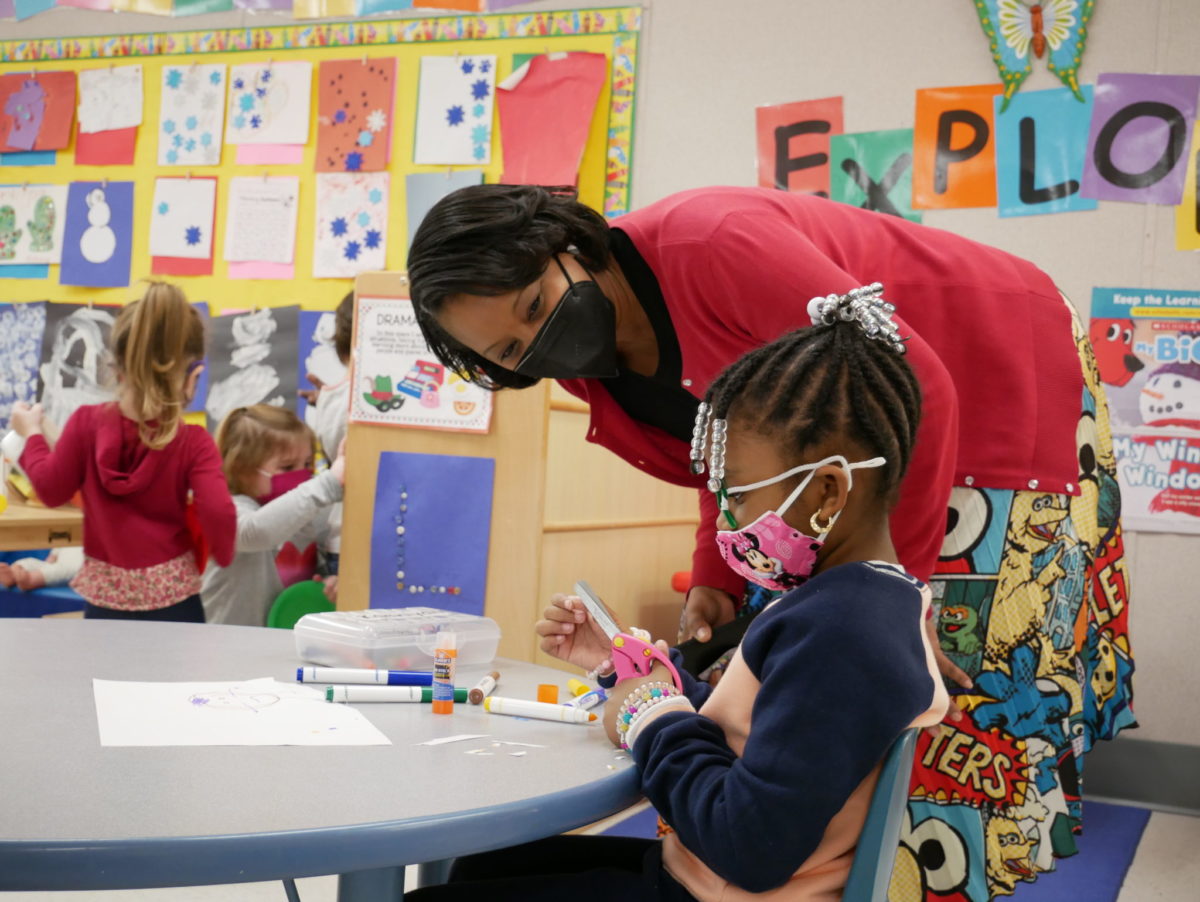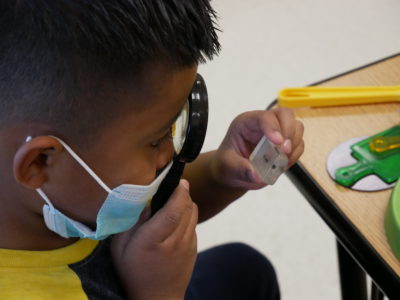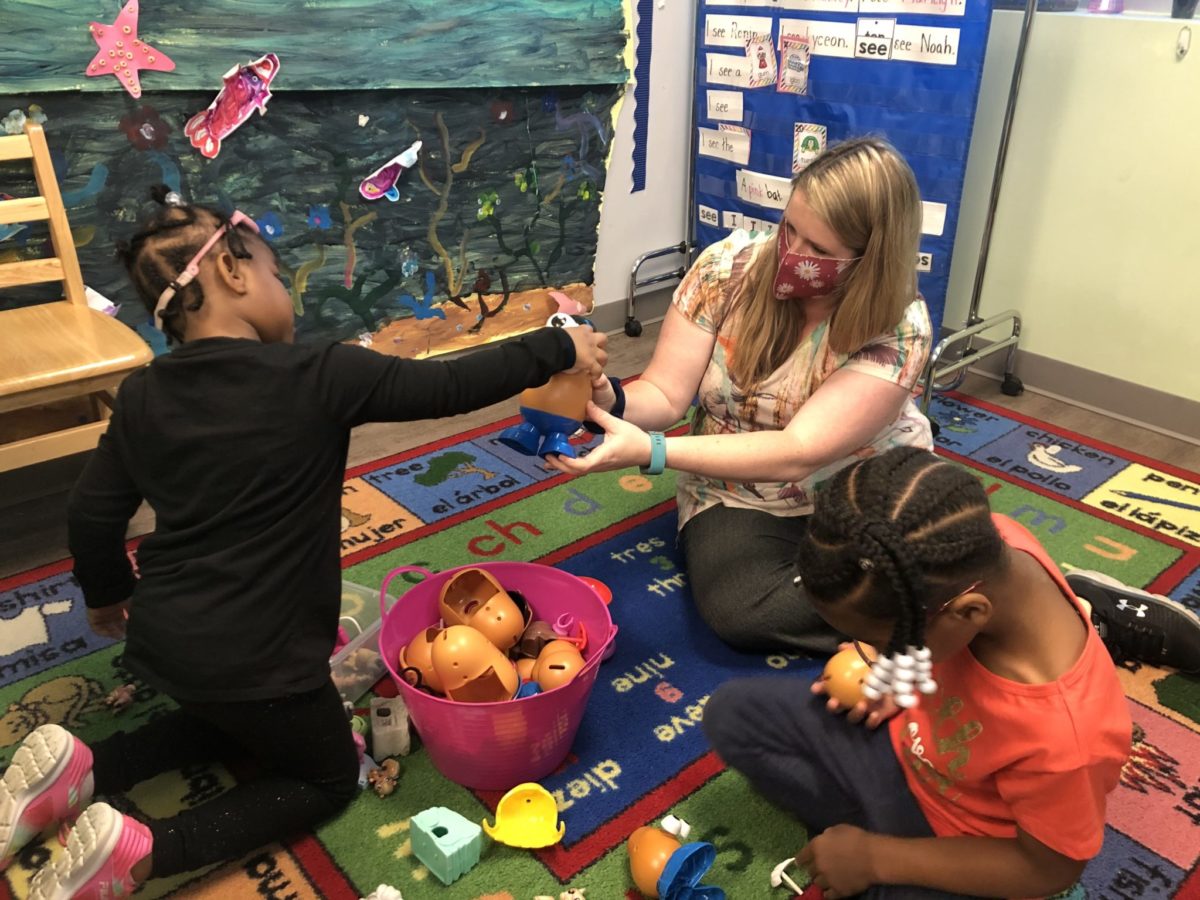
|
|
A local early childhood task force met for the first time in Forsyth County on Thursday, June 17. That meeting has been seven years in the making.
The group’s task is a common one across North Carolina communities: figure out how to establish universal pre-K, which research shows makes an important difference in children’s school and life experiences.
The group’s official mission is “to create a plan for the implementation of a comprehensive, integrated pre-K system in Forsyth County that will provide all families in Forsyth County with the opportunity to enroll their children in a high-quality pre-K program.”
As the state and country grapple with early education proposals, Forsyth County joins a long list of localities laying the groundwork for change and tackling the problems young children and families in their communities face. But the story leading up to that meeting is unique to its place and people.
Sign up for Early Bird, our newsletter on all things early childhood.
“We don’t need to convince people that pre-K is important,” said Don Martin, chair of the task force, a county commissioner in his second term, and former superintendent of the school district. “We need to figure out, you know, what does it look like? Where’s it gonna be? I mean, we got to get down to some operationalizing.”
The well-established importance of pre-K in the community is partly due to a local group that’s been studying the early childhood landscape and asking how to expand important services since 2013.
“We have a long history in early childhood with our programs,” said Bob Feikema, president and CEO of Family Services, a nonprofit organization that administers the county’s Head Start program, the federal pre-K program for 3- and 4-year-olds living below the poverty line.
In 2013, the organization started to look outside its own services through a strategic planning process.
“The strategic plan recognized that we need to continue to provide that service but that actually it’s something that the whole community could benefit from, to have high-quality early childhood programs,” Feikema said. “When we looked to operationalize (that), we narrowed it down to pre-K.”
The next year, Feikema and his team invited 10 local early education partners together to ask how the services they knew made a difference for young children could be expanded. They formed the Pre-K Priority.
Seven years later — with cross-sector partners, parent voices, and a new task force — Martin and Feikema are hoping the community can reach a shared vision.
“We’re going to begin to tackle some tough questions and have some conversations that really have not been carved out,” Martin said.
A necessary pandemic pause
In the spring of 2020, the Pre-K Priority proposed a large pre-K investment to its county commissioners. It was largely based off of Durham’s pre-K initiative, which Feikema and others had visited to study. Read a summary of the group’s 2019 report on the local pre-K landscape and recommendations for expansion here.
Then the pandemic hit.
“Once COVID came, it was kind of off the table,” Feikema said.
The pandemic wasn’t the only reason. He said the initiative, up until that point, had mainly been comprised of individuals and organizations within the early learning field.
“I think we also found that we maybe hadn’t done as good a job as we needed to, to submit a proposal that was doable that reflected some of the realities of Forsyth County and at the state level, and so that’s when we really decided we needed to expand our planning process,” he said.
Over the last year, the group reached out to as many organizations and individuals as possible. More than 60 organizations signed on to a declaration asking both the city council and the board of county commissioners to establish an early childhood task force. The organizations included major employers, hospital systems, business leaders, two colleges, faith-based organizations, human service groups, and grassroots organizations.
“Why we got even more involved is not only is it helping our future workforce and future talent by getting started early,” said Mark Owens, president and CEO of Greater Winston-Salem, Inc., formerly known as the chamber of commerce, “it’s providing those that are currently in the workforce an opportunity to have affordable access to education … It really helps from both sides of the balance beam that we’re helping our community overall and for economic mobility … Access to affordable pre-K is crucial so that everybody has an opportunity to participate.”
In Forsyth County, Black and Hispanic children have lacked access to high-quality child care at higher rates than other communities, said Shenell Thompson, senior program officer at Kate B. Reynolds Charitable Trust (KBRCT), which funds the Pre-K Priority through its Great Expectations initiative.
At their initial meeting, Feikema shared racial disparities in kindergartners’ reading skills in 2013 and 2018, measured by an assessment tool called DIBELS.
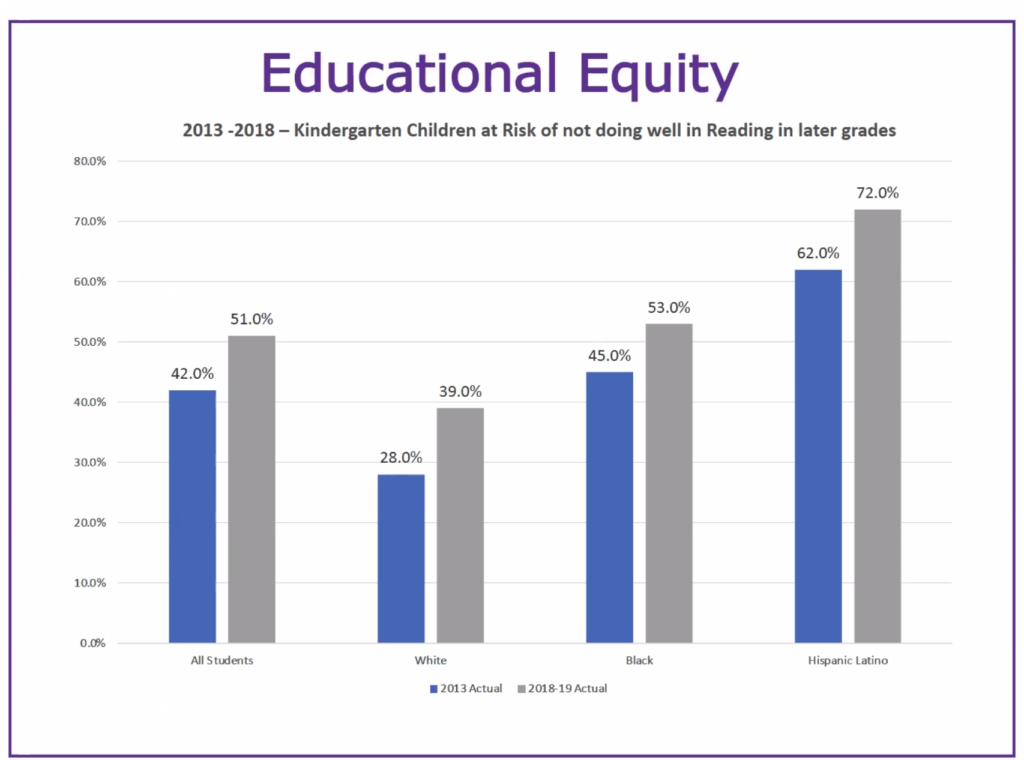
KBRCT has also funded two community organizations to be at the table: Latino Community Services and Action4Equity.
KBRCT’s website says the organizations were funded to add missing pieces to the pre-K conversation by “inviting parent voices and communities of color to the coalition to ensure Forsyth County builds a pre-K system that works for families who have been denied access for far too long.”
“The players within the system did not adequately represent the populations most impacted by lack of pre-K,” Thompson said.
Odette Sanchez, director of Latino Community Services, which provides a variety of supports to families, including pre-K, said the organization is one of the only nonprofits directly serving the Hispanic Latino community. The organization provided food boxes to 157 families through the pandemic, is assisting young girls with technological and job readiness skills, and is starting a bilingual summer program to catch children up who have been in various settings.
“[There are] so many children that do not have the benefit to attend programs like this,” Sanchez said. “That’s the reason why we began doing this … We saw the need, and we saw the challenges, and we had to find a way to be able to help the families.”
Parents at the center
Kristy Hairston, a mother of five and Forsyth County resident, has become an expert in early education in more ways than one. As a mother, Hairston knows what goes on in the first years of children’s lives in and out of the classroom — as well as the barriers to some programs, from cost to a lack of transportation.
As a member of parent committees in the Head Start programs her children have attended, Hairston has further learned how to advocate for her children’s learning.
“There is way more to it than (the program) just watching your kids for six hours,” Hairston said. “These kids need to learn. Parents need to be active in everything that’s going on.”
Inspired by a love for young children and her child’s Head Start family advocate, Hairston is now taking classes at Forsyth Technical Community College in early childhood education with the goal to open her own child care center one day.
She is now serving on the task force through Action4Equity, an education advocacy group, and Forsyth Family Power, a “think and do tank” of parents whose children attend Title 1 schools in the area. The organizations are facilitating a panel with three parts: a Black caucus, a Hispanic caucus, and an early childhood development caucus.
Each group has a community convener, 3-5 parent/family researchers, and 10-20 parent/family caucus members. The parent caucuses will be collaborating with the Pre-K Priority steering committee and informing the task force’s executive committee.
Hairston said she’s hoping to hold leaders accountable for higher early educator pay, transportation, and the expansion of high-quality services to every 4-year-old.
“I just feel like everybody should be awarded the same benefits,” Hairston said.
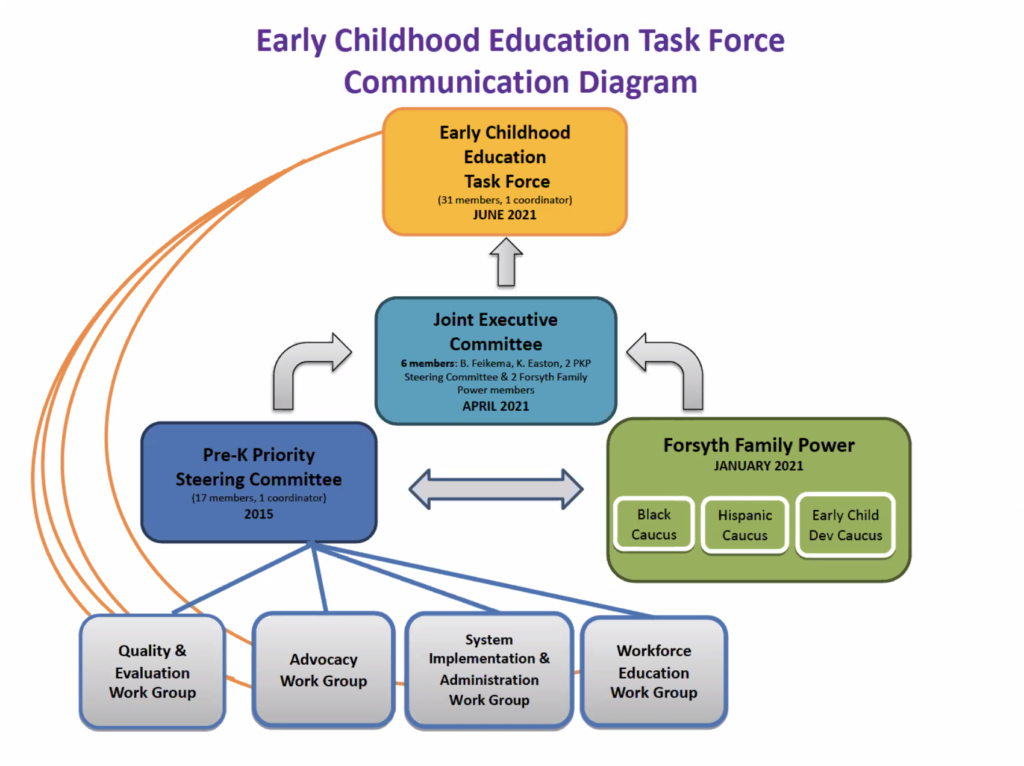
Task force members will join one of the work groups listed above to tackle the specifics of pre-K, including how to leverage current funding streams and advocate for more, as well as the creation of an implementation timeline and evaluation standards.
Pre-K is complicated. For one, it falls in between two worlds: early childhood and K-12. In many counties, like in Forsyth, there are pre-K classrooms in public elementary schools, private child care centers, and Head Start centers.
In each of those settings, administrators have to use funds from a variety of sources to make ends meet: Title 1, child care subsidy, NC Pre-K, Head Start, Exceptional Children’s grants, private tuition, and Smart Start.
At times, that can lead to providers fighting over funds and not being able to coordinate, said Louis Finney, executive director of Smart Start of Forsyth County, an organization that administers early childhood funds and programming for the county, including NC Pre-K, the state’s public pre-K program for at-risk 4-year-olds.
In Forsyth County, parents fill out a single application for pre-K and indicate their setting preferences, while administrators from several agencies work together to serve the most children possible across program eligibility requirements.
Finney said he’s worked in early childhood at different levels in seven states and has never seen the kinds of partnership that he has witnessed across Forsyth County’s early childhood programs and across the community.
“This is my first experience where you actually have a united front,” Finney said, later adding, “I think we have the right people around the table who are actually in it to win it, and not just in it to be around the table.”
Correction: A previous version of this article misstated Kristy Hairston’s last name.
Recommended reading
